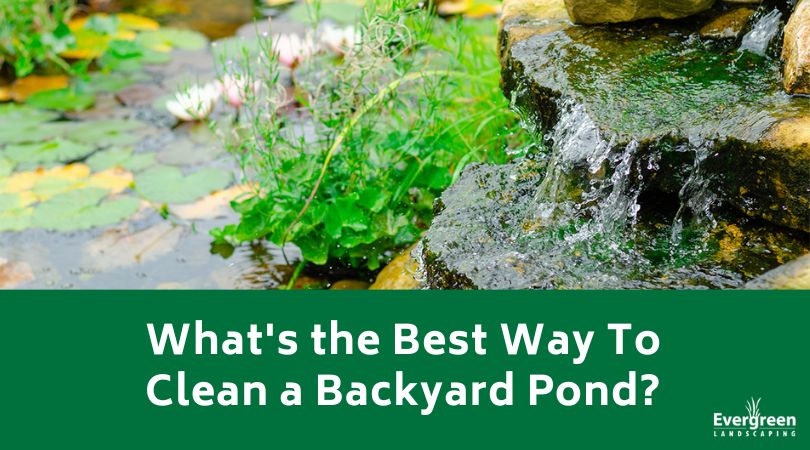
Water elements are the jewels in your landscaping crown. People love backyard ponds for many reasons.
Some homeowners just enjoy the look of a pond, while others have always dreamed of a koi pond.
If you’ve designed your landscaping to create a relaxing atmosphere, a pond is the perfect place for enjoying nature.
Like all landscaping elements, ponds require cleaning and maintenance.
Before Installing a Pond
A pond comes with responsibility. Some things to think about when planning your pond are:
• Wildlife
• Mosquitoes
• Plant life
• Maintenance
• Location
• Filtration systems
Backyard ponds are great landscaping features and enjoyable for the whole family.
Just be prepared for frequent maintenance.
First Steps
The first thing to ask your landscaper is what part of your property is most suitable for a pond.
You should place your pond in an area of your property that’s level and shaded or partially shaded.
You should discuss mosquito management with your landscaper.
Dragonflies will find your pond and eat mosquitoes, as will frogs and bats, and wildlife will drink there, especially during periods of drought.
We strongly recommend against using insecticides that could harm beneficial wildlife.
Use pond-specific enzymes instead.
Insecticides may also harm natural aquatic plants and plants like water lilies that you add to your pond. Filtration systems make cleaning easier and discourage mosquito breeding.
Cleaning Your Backyard Pond
Decorative ponds without koi should be cleaned in the spring.
Don’t forget frogs and frog spawn.
Clean your pond before frog spawn appears.
Frogs are beneficial, insect-controlling backyard wildlife.
Experts advise letting your established pond go as long as five years between cleanings.
The key to a clean, healthy pond is to think of it as a small swimming pool and use small nets to remove anything that can rot and spoil the water.
Cool temps (under 70F) are best for pond cleaning day.
Fish are easier to move on a cool day rather than a warm day.
Your landscaper may also suggest removing floating decorative plants to avoid damage.
Never totally drain your pond.
Leave a few inches of water, and don’t forget that you’ll need to replace pond enzymes as well as water.
Cleaning a backyard pond is a task that takes up most of the day, but much of that time is gradually refilling the pond.
Check the water temperature before and after cleaning.
When the water is back to pre-cleaning temp, you can safely replace plants and koi.
Don’t discard all the “dirty” water because it contains good bacteria that your pond needs.
Are You Ready for Koi?
Koi are gorgeous creatures that require feeding and extra care.
Koi ponds are spectacular, but you don’t have to add fish to your backyard pond to make it attractive and interesting.
Things to Remember:
• Pond cleaning should be infrequent
• Clean decorative ponds in spring
• Ponds with fish should be cleaned on cool days
If you want a backyard pond for your yard contact us at (805) 773-5395.
